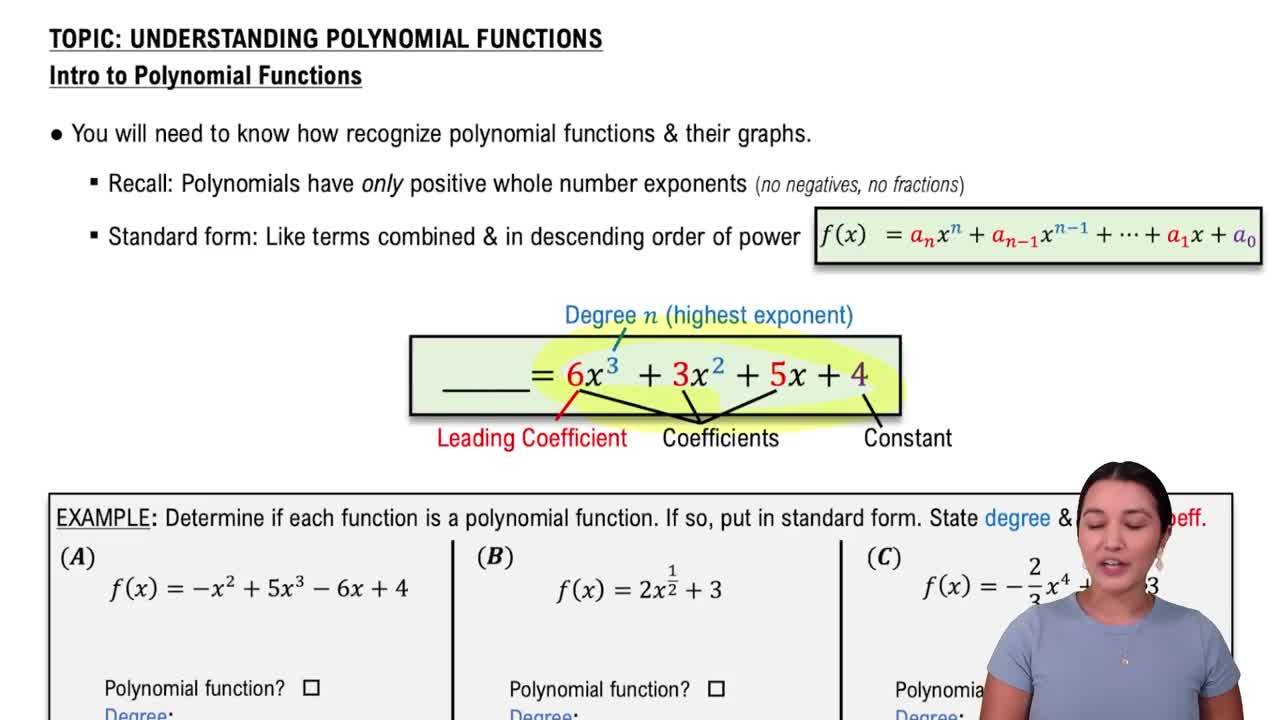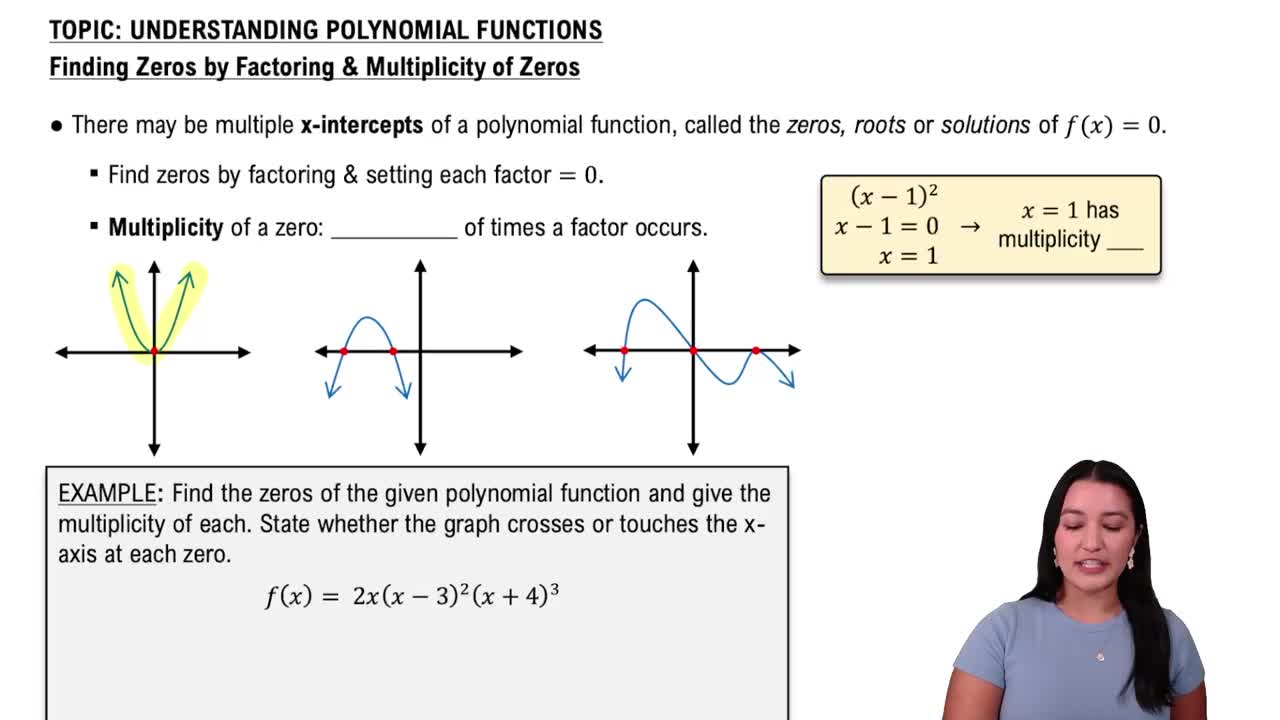Table of contents
- 0. Review of Algebra4h 16m
- 1. Equations & Inequalities3h 18m
- 2. Graphs of Equations43m
- 3. Functions2h 17m
- 4. Polynomial Functions1h 44m
- 5. Rational Functions1h 23m
- 6. Exponential & Logarithmic Functions2h 28m
- 7. Systems of Equations & Matrices4h 6m
- 8. Conic Sections2h 23m
- 9. Sequences, Series, & Induction1h 19m
- 10. Combinatorics & Probability1h 45m
4. Polynomial Functions
Zeros of Polynomial Functions
Problem 49b
Textbook Question
For each polynomial function, find all zeros and their multiplicities. ƒ(x)=3x(x-2)(x+3)(x^2-1)
 Verified step by step guidance
Verified step by step guidance1
Identify the factors of the polynomial function \( f(x) = 3x(x-2)(x+3)(x^2-1) \).
Recognize that \( x^2 - 1 \) is a difference of squares, which can be factored further as \( (x-1)(x+1) \).
Rewrite the polynomial as \( f(x) = 3x(x-2)(x+3)(x-1)(x+1) \).
Set each factor equal to zero to find the zeros: \( x = 0, x = 2, x = -3, x = 1, x = -1 \).
Determine the multiplicity of each zero by examining the exponents of the factors. Since each factor appears only once, each zero has a multiplicity of 1.
Recommended similar problem, with video answer:
 Verified Solution
Verified SolutionThis video solution was recommended by our tutors as helpful for the problem above
Video duration:
5mPlay a video:
Was this helpful?
Key Concepts
Here are the essential concepts you must grasp in order to answer the question correctly.
Polynomial Functions
A polynomial function is a mathematical expression involving a sum of powers in one or more variables multiplied by coefficients. The general form of a polynomial in one variable is f(x) = a_n*x^n + a_(n-1)*x^(n-1) + ... + a_1*x + a_0, where 'n' is a non-negative integer and 'a_n' is not zero. Understanding polynomial functions is crucial for analyzing their behavior, including finding zeros.
Recommended video:

Introduction to Polynomial Functions
Zeros of a Polynomial
The zeros of a polynomial function are the values of 'x' for which the function equals zero, i.e., f(x) = 0. These points are also known as roots and can be found by factoring the polynomial or using the quadratic formula for second-degree polynomials. Identifying zeros is essential for understanding the function's graph and its intersections with the x-axis.
Recommended video:

Finding Zeros & Their Multiplicity
Multiplicity of Zeros
The multiplicity of a zero refers to the number of times a particular root appears in the factorization of a polynomial. If a polynomial can be expressed as (x - r)^m, where 'r' is a root and 'm' is the multiplicity, then 'm' indicates how many times 'r' is a solution. The multiplicity affects the graph's behavior at the zero, such as whether the graph crosses or touches the x-axis.
Recommended video:

Finding Zeros & Their Multiplicity
Related Videos
Related Practice


